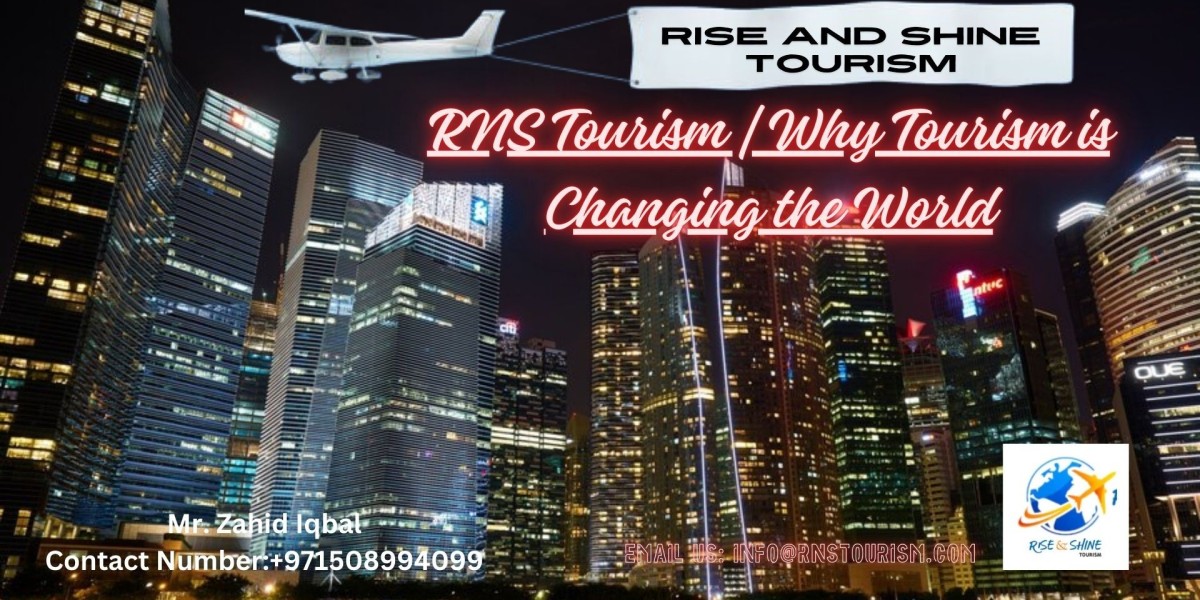Tourism is not merely a leisure activity; it is a significant driver of economic development, cultural exchange, and environmental awareness. As global connectivity increases, the landscape of tourism continues to evolve, impacting societies in profound ways. In this article, we will explore the multifaceted role of tourism in transforming our world, examining its economic, cultural, and environmental implications.
The Economic Impact of Tourism
A Catalyst for Economic Growth
Tourism serves as a vital economic engine for many countries. In 2019, before the pandemic, the sector contributed approximately 10.4% of global GDP, underscoring its importance in fostering economic stability and growth. From job creation to infrastructure development, the benefits of tourism are manifold:
Job Creation: The tourism industry generates millions of jobs worldwide, directly and indirectly. According to the World Travel & Tourism Council (WTTC), the sector supported over 330 million jobs globally, representing one in ten jobs.
Infrastructure Development: As destinations seek to attract tourists, they invest in infrastructure improvements, including transportation, hospitality, and recreational facilities. This not only enhances the tourist experience but also benefits residents.
Local Business Support: Tourism encourages the growth of local businesses, from restaurants to artisanal shops. Tourists often seek authentic experiences, prompting an increase in demand for locally produced goods and services.
Revenue Generation
Tourism generates significant revenue for both local and national economies through various channels:
Taxes: Governments collect taxes from tourism-related activities, which can be reinvested into public services and community development.
Foreign Exchange Earnings: International tourists bring foreign currency, bolstering national reserves and stabilizing the economy.
Cultural Exchange and Preservation
Fostering Cultural Understanding
Tourism acts as a bridge between cultures, facilitating dialogue and understanding among diverse populations. When individuals travel, they engage with local traditions, languages, and customs, which promotes mutual respect and appreciation.
Cultural Preservation: Many regions rely on tourism to preserve their cultural heritage. By showcasing traditional arts, crafts, and festivals, communities can sustain their identity while attracting visitors.
Community Empowerment: Empowering local communities to share their cultural narratives allows for a more authentic representation. This not only benefits tourists but also instills pride within local populations.
Challenges of Cultural Tourism
While tourism promotes cultural exchange, it can also pose challenges. Overtourism can lead to the commodification of culture, where traditions are altered for commercial gain. Striking a balance between authenticity and tourism demands is essential to safeguard cultural integrity.
Environmental Sustainability in Tourism
A Growing Awareness
As global awareness of environmental issues increases, the tourism industry is gradually embracing sustainable practices. Tourists are becoming more conscious of their ecological footprint, leading to a demand for environmentally responsible travel options.
Eco-Tourism: This niche market promotes responsible travel to natural areas, focusing on conservation and minimizing impact. Eco-tourism fosters awareness about environmental issues while providing economic benefits to local communities.
Sustainable Practices: Many tourism operators are adopting sustainable practices, such as reducing waste, conserving water, and supporting renewable energy initiatives. This shift is essential for preserving natural resources for future generations.
The Role of Technology in Sustainable Tourism
Advancements in technology are aiding sustainable tourism initiatives:
Smart Destinations: The integration of technology in tourism management helps monitor visitor numbers and manage resources more effectively. Real-time data can guide tourists to less crowded areas, alleviating pressure on popular sites.
Virtual Reality (VR): VR can offer immersive experiences that reduce the need for physical travel, allowing individuals to explore destinations virtually while minimizing environmental impact.
The Future of Tourism
Post-Pandemic Recovery
The COVID-19 pandemic significantly impacted global tourism, leading to an unprecedented decline in travel. However, as the world recovers, tourism is poised to adapt and innovate. Key trends shaping the future of tourism include:
Health and Safety: Travelers are increasingly prioritizing health and safety measures. Destinations that implement rigorous health protocols will attract more visitors.
Digital Transformation: The rise of contactless technology and mobile applications will streamline the travel experience, making it more convenient and efficient.
Local Travel: A shift towards local tourism has emerged, as people explore nearby destinations. This trend supports local economies and encourages sustainable travel practices.
Embracing Diversity and Inclusion
The future of tourism must also embrace diversity and inclusion. Creating accessible travel experiences for individuals of all backgrounds will enrich the tourism landscape and foster a sense of belonging for all travelers.
FAQs
What is the economic impact of tourism?
Tourism significantly contributes to the global economy by creating jobs, generating revenue through taxes and foreign exchange, and supporting local businesses. It accounts for approximately 10.4% of the global GDP.
How does tourism promote cultural exchange?
Tourism facilitates interaction between different cultures, fostering understanding and appreciation. Travelers engage with local customs, traditions, and languages, promoting mutual respect.
What are the benefits of eco-tourism?
Eco-tourism emphasizes responsible travel to natural areas, focusing on conservation and sustainability. It supports local communities and raises awareness about environmental issues while providing economic benefits.
How has the COVID-19 pandemic affected tourism?
The pandemic led to a significant decline in travel worldwide, impacting economies and livelihoods. However, it has also prompted a shift towards health and safety measures and increased interest in local tourism.
What role does technology play in the future of tourism?
Technology enhances the travel experience through innovations like contactless payments, smart destination management, and virtual reality. It aids in resource management and offers safer, more convenient travel options.
Conclusion
Tourism is a powerful force that shapes economies, cultures, and the environment. As we move forward, it is essential to embrace sustainable practices, foster cultural understanding, and prioritize health and safety. By doing so, we can ensure that tourism continues to change the world positively.



